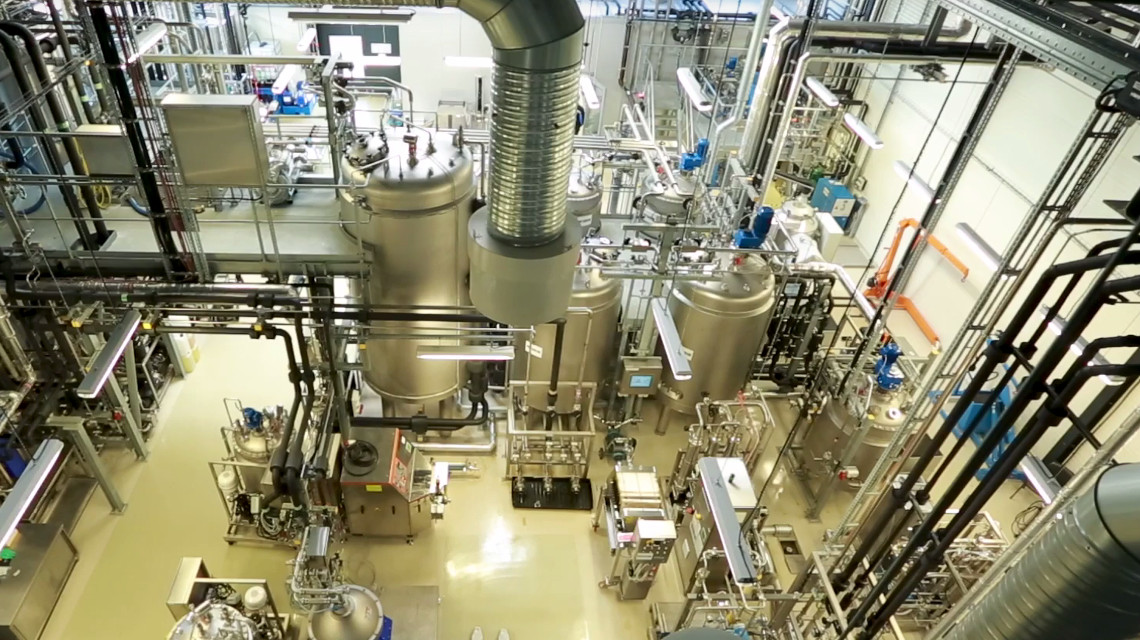Study examines acceptance of biobased innovations in the Rhineland
The implementation of the bioeconomy strategy in North Rhine-Westphalia can only succeed if the population is involved and the benefits of biobased technologies are highlighted more clearly.

Innovations from the bioeconomy are important drivers for mastering the major challenges of the future, such as climate change, food security, raw material scarcity and species loss. With its bioeconomy strategy, the German government initiated the shift toward a sustainable and resource-conserving economy years ago and put the promotion of bioeconomic innovations on the political agenda. However, the establishment of bio-based technologies also requires acceptance among the population. In a recent study, three researchers from the University of Bonn therefore investigated how high the acceptance of the population is specifically for biorefineries and aquaponics plants and which factors influence this acceptance.
Almost 2,000 people were surveyed in an online poll. Half of the participants came from the Rhenish coalfield, a region that is already tackling the structural change - away from coal and toward a biobased and sustainable economy. With a view to the planned coal phase-out in 2038, a "Rhenish Revier Bioeconomy Model Region" is to be created here with the support of the federal government and the state of North Rhine-Westphalia.
Green industry, but not in the neighborhood
The survey revealed that many people are open to "green§" industry in principle, but do not want it in their own neighborhood. To the researchers' surprise, participants from the Rhenish mining area were more opposed to biorefineries and aquaponics plants in their neighborhood than participants from other regions of North Rhine-Westphalia. One explanation given by the researchers is that people here are more sensitive to new developments due to decades of open-cast lignite mining. In addition, there are already concrete plans for a bioeconomy model region here, which makes the upcoming structural change "more tangible" for the people.
Disadvantages of bio-based innovations are overestimated
A decisive factor for acceptance is how the advantages and disadvantages of such technologies are perceived. According to the study, the advantages are often underestimated, while the disadvantages are overestimated. "Many respondents fear that biorefineries are huge plants, as known from oil refineries, and associate these plants with stench," explains doctoral student and lead author of the study, Janine Macht. "But in fact, biorefineries can be much more compact than large-scale refineries, and odor emissions are virtually zero thanks to advanced filtration technologies."
The role of emotions
However, the acceptance of biobased technologies such as biorefineries and aquaponics plants also depends on what people associate with these technologies and which emotions are triggered. For example, the acceptance of aquaponics plants was most strongly influenced by positive emotions such as joy and hope. For biorefineries, on the other hand, negative feelings such as worry and fear played a greater role.
Engaging the population
The survey clearly shows that lack of knowledge is a factor in the rejection of new technologies. Pros such as the benefits to the local economy, the creation of skilled jobs and the expansion of the local food supply should be highlighted more clearly. According to the study, communicating the benefits and risks of planned technologies and involving the public at an early stage can help reduce negative emotions and risk perceptions and make controversial debates more objective. The affected population must therefore be involved in the implementation of bioeconomy strategies - this is the conclusion of the study entitled "Don't forget the local people: insights into citizen acceptance of biobased technologies", which was published in the journal Technology in Science.
bb


